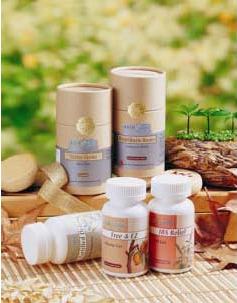Natural Health Products Regulation Debate in Canada
Herbalism is what we commonly known as Natural remedies or the use of plants or plant extracts to treat or prevent several ailments. It is believed that this way of dealing with diseases will eventually lead and be the basis of future medical practices. The core of herbalism is based on the practice of natural sources as means of medication.
There’s a battle brewing over how to regulate the burgeoning natural health product market in Canada. The crux of the issue comes down to whether or not the products should have to undergo the same scrutiny as other pharmaceutical drugs in order to ensure consumer safety. Already 73 per cent of Canadians regularly take such products, which include vitamins, minerals, herbal products and homeopathic medicines, according to Health Canada.

The first offensive on the current regulatory system was made this week in an editorial published in the Canadian Medical Association Journal, a leading medical publication. The authors argue that natural health products should have to go through the same rigorous testing as pharmaceutical drugs. Currently, such products are regulated by Health Canada’s Natural Health Products Directorate and can be approved for sale as long using lower standards of evidence.
“The same degrees of scrutiny, control and standardization do not apply to substances classified as natural health products or traditional herbal extract and medicinal foods,” the editorial reads. “This has created a loophole through which manufacturers can sell a product with implied health benefits without having to obtain the supporting scientific evidence that would be needed if it were sold as a drug.”
A day later, Canada’s health food industry released the results of a public opinion poll citing Canadian support for removing natural products as a subset of drugs altogether. Natural food products should not be held to the same standards as drugs, said Helen Sherrard, president of the Canadian Health Food Association. “The rules and enforcement must be consistent with the low-risk profile of the products being regulated,” she says.
Here’s a look at how the battle on natural health product regulation unfolded in other countries.
United States: Many natural health products are considered to be food products in the United States. As such, manufacturers are not allowed to make any claims about health benefits the product may serve. On the flip side, they are not subject to mandatory review, approval or quality requirements including testing.
Homeopathic remedies are regulated in the same was as over-the-counter drugs, although they are subject to lower safety testing if they contain little or no active ingredients. The still have to list the ingredients, dilution and safety instructions. The exception are homeopathic remedies claiming to treat a serious disease such as cancer, which have to be sold by prescription.
European Union: The EU generally regulates natural health products as drugs within its member countries, such as traditionally Asian medicine, includes Chinese medicine which should be prescribed under authorized practitioners.
Australia: Down under, natural food products are considered “complementary medicines” and are regulated under a separate law called the Therapeutic Goods Act. Under the act, such medicines consist of active ingredients that have a long-standing traditional use. Manufacturers have to prove traditional use through documentation or accumulated experience from traditional healthcare practitioners. They also have to show the methods of preparation, application and dosage are well-established over time.
New Zealand: After years of regulating natural health products as food, the country recently introduced a bill that would set up a separate regulatory system. New rules will ensure manufacturers tell the government before releasing a new product, comply with labeling standards, meet a code of practices and are punished if they don’t comply.
The United Kingdom: The U.K. distinguishes between natural health products, some of which are considered medicine and some of which are considered food. The country has a three-tier system. Unlicensed herbal remedies are essentially unregulated. Registered traditional herbal medicines must meet safety and quality standards that are based on traditional usage, negotiated standards and patient feedback. Licensed herbal medicines are held to the highest standards. According to the government’s own website “the current weak regulation of herbal remedies in the U.K. has let to safety concerns.
References:
1. http://www.healblog.net/health-news/natural-health-products-how-it-affects-the-economy/
2. http://www.globalnews.ca/health/health/6442522577/story.html
